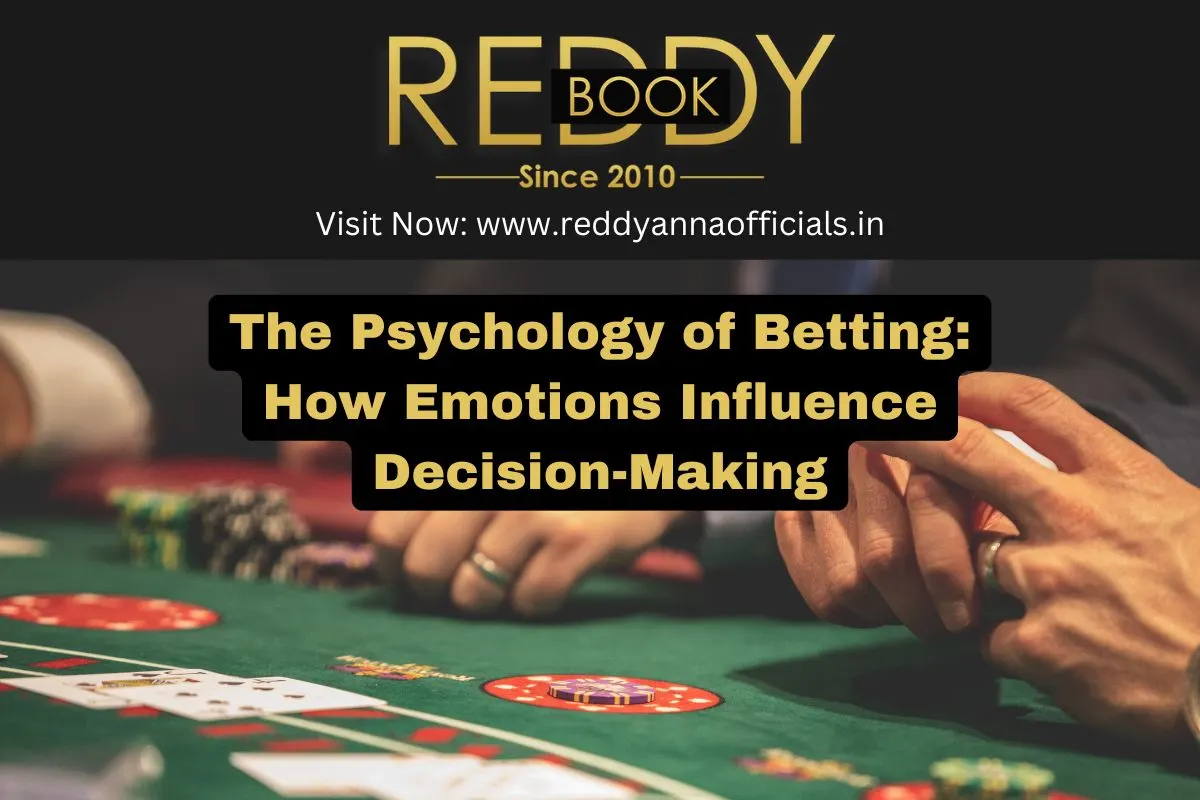The Psychology of Betting: How Emotions Influence Decision-Making
Published on 2025-04-01 - By Reddyanna team
Views: 5243

Betting is not merely a matter of numbers and odds—it’s a psychological experience that can significantly influence decision-making. Every wager triggers emotions that affect future betting behavior. Understanding the psychological aspects of betting can help you make intelligent decisions, avoid irrational actions, and maintain control over your strategies.
Why Betting Feels So Addictive
The thrill of betting is deeply connected to the human brain's reward system. Winning releases dopamine, creating feelings of excitement and satisfaction. However, these emotional highs can also lead to excessive risk-taking.
Key Psychological Triggers in Betting
- Dopamine Rush: The euphoria of winning reinforces the desire to bet again.
- Loss Aversion: Losses tend to hurt more than wins feel good, often leading to emotional decision-making.
- Overconfidence Bias: Past wins may give bettors a false sense of control over future outcomes.
- Fear of Missing Out (FOMO): Seeing others win can pressure individuals to place bets even when the odds aren’t in their favor.
Emotional Reactions That Affect Betting Decisions
Our emotional responses play a critical role in how we bet:
-
The Ups and Downs of Winning and Losing:
- Winning Streaks: Success can lead to overconfidence, prompting riskier bets.
- Losing Streaks: Frustration from losses may drive impulsive bets in an attempt to recover.
-
Social Influence:
- Peer Pressure Betting: Decisions may be swayed by friends or online communities rather than logical analysis.
-
Illusion of Control:
- Many bettors believe they can control outcomes through lucky numbers or superstitions, rather than relying on data and analysis.
Cognitive Biases That Lead to Betting Mistakes
Recognizing and overcoming cognitive biases is key to smarter betting:
- The Gambler's Fallacy: Believing that past outcomes influence future events (e.g., expecting a change after a series of similar outcomes).
- Confirmation Bias: Seeking out information that supports pre-existing beliefs while ignoring contradictory data.
- Sunk Cost Fallacy: Continuing to bet to recoup losses, often resulting in even greater losses.
- Recency Bias: Overvaluing recent results at the expense of long-term trends.
How to Stay in Control While Betting
Maintaining discipline is crucial for responsible betting. Here are some strategies to help you stay in control:
-
Set Betting Limits:
- Decide on a fixed bankroll and stick to a pre-determined loss limit.
- Avoid chasing losses by increasing your stakes.
-
Make Data-Driven Decisions:
- Rely on statistics, historical performance, and expert analysis rather than emotions or gut feelings.
- Compare odds across platforms to ensure you’re getting the best value.
-
Take Breaks and Stay Objective:
- Step away from betting after a loss to avoid emotional decisions.
- Recognize when stress or excitement is influencing your judgment.
-
Understand the Reality of Probabilities:
- No bet is guaranteed; short-term luck does not ensure long-term success.
- Patience and a well-thought-out strategy are essential for winning consistently.
Final Thoughts
The psychology of betting is as important as understanding the odds. Emotions, cognitive biases, and psychological triggers can all influence your betting decisions—often to your detriment. By recognizing these influences and adopting a disciplined, research-based approach, you can master the art of smart betting.
Remember, winning isn’t just about luck; it’s about making informed decisions, managing risks wisely, and staying emotionally in control. Bet smart, remain disciplined, and enjoy the thrill of betting responsibly.
Related Link: Mastering the Art of Betting: Winning Strategies and Common Pitfalls